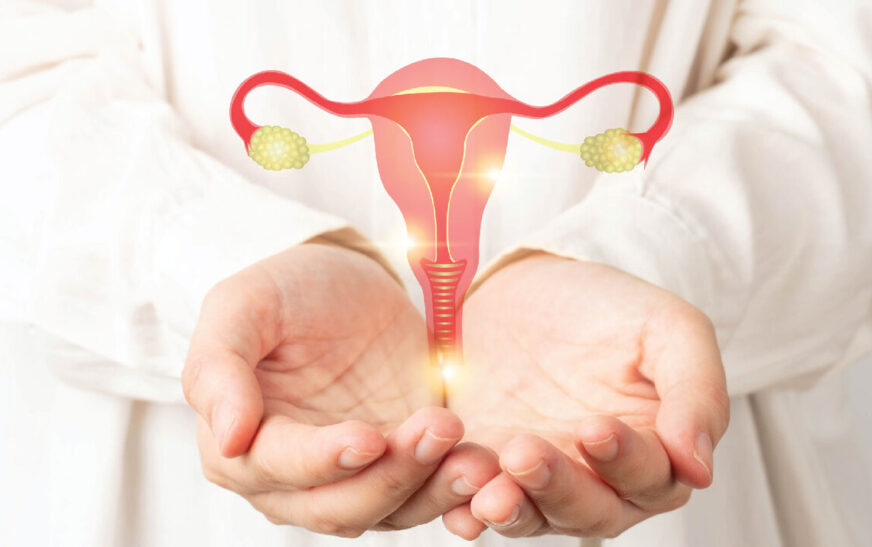For couples struggling with infertility, the journey to parenthood can often feel overwhelming. Fortunately, modern medical advancements have provided several fertility treatments to assist in overcoming these challenges. One of the most common and effective options is Intrauterine Insemination (IUI). This blog post will guide you through the IUI process, its benefits, who it’s suitable for, and what to expect when undergoing treatment. If you’re in Nairobi and looking for the best IUI treatment in Nairobi, this post will also help you understand how to choose the right clinic.
What is IUI (Intrauterine Insemination)?
IUI, or Intrauterine Insemination, is a fertility treatment where sperm is directly placed into the uterus during a woman’s ovulation window to increase the chances of pregnancy. This procedure is designed to improve the quality of sperm and make the fertilization process more efficient.
IUI is often recommended for couples dealing with infertility issues such as unexplained infertility, male infertility, cervical problems, or ovulation disorders. The goal of IUI is to increase the likelihood of sperm reaching the egg by bypassing the cervix, ensuring that a higher number of healthy sperm cells are available at the right time.
How Does IUI Work?
The IUI process typically follows a series of steps:
- Ovulation Monitoring: Your fertility specialist will monitor the woman’s cycle to identify the ideal time for insemination. This may involve blood tests and ultrasounds to track ovulation.
- Sperm Preparation: The male partner’s sperm is collected and carefully processed in the lab to concentrate the healthiest and most motile sperm. This is known as “sperm washing.”
- Insemination: Once ovulation is confirmed, the prepared sperm is introduced directly into the uterus through a thin catheter. This is a quick and minimally invasive procedure that is usually done in the clinic.
- Pregnancy Test: After about 10–14 days, a blood test or urine test will confirm if pregnancy has occurred. If successful, your doctor will monitor the pregnancy with ultrasounds and follow-up tests.
Who Should Consider IUI Treatment?
IUI is often the first line of treatment for many couples experiencing fertility issues. Here are some common conditions where IUI might be recommended:
- Unexplained Infertility: When doctors are unable to determine the cause of infertility, IUI can help increase the chances of pregnancy.
- Male Factor Infertility: For men with low sperm count, poor sperm motility, or other sperm-related issues, IUI can help improve fertilization chances by delivering sperm directly to the uterus.
- Ovulation Disorders: Women with irregular ovulation can benefit from IUI when combined with ovulation-stimulating medications like Clomid.
- Cervical Issues: Women who have cervical mucus problems that prevent sperm from traveling through the cervix may benefit from IUI, as it bypasses the cervix.
- Same-Sex Couples or Single Women: IUI can also be used for women seeking fertility treatments with donor sperm.
Benefits of IUI Treatment
IUI is one of the most straightforward fertility treatments with several advantages:
- Non-invasive: IUI is far less invasive than other fertility treatments like In Vitro Fertilization (IVF). It doesn’t require surgical procedures and is generally performed in an outpatient setting.
- Less Expensive: Compared to IVF, IUI is typically much more affordable. This makes it an appealing option for couples looking for cost-effective fertility treatment.
- Quick Recovery Time: The procedure is relatively simple, and most women can resume normal activities the same day or within a few hours.
- Increased Success with Fertility Medications: When combined with fertility medications to stimulate ovulation, IUI can significantly increase the chances of conception.
- Natural Fertilization: Unlike IVF, which involves fertilizing the egg outside the body, IUI allows fertilization to take place naturally inside the body, using the sperm and egg from the couple or a donor.
Success Rates of IUI Treatment
The success rate of IUI depends on several factors, including the woman’s age, the cause of infertility, and whether fertility medications are used. On average, success rates range from 10% to 20% per cycle, but they can vary widely.
- Age: Women under 35 tend to have the highest success rates with IUI, while women over 40 may see a lower success rate.
- Male Factor Infertility: The quality and motility of the sperm play a significant role in the outcome of IUI. Healthy sperm generally leads to higher success rates.
- Underlying Causes of Infertility: IUI may be more successful for treating certain fertility issues, like ovulation problems or mild male infertility, than for others.
While IUI success rates are typically lower than IVF, many couples have found it to be an effective treatment, especially when the cause of infertility is relatively mild.
IUI vs. IVF: Which One is Right for You?
IUI and IVF are both popular fertility treatments, but they are quite different in their approaches.
- IUI: This is less invasive and less expensive. It’s suitable for couples with mild infertility issues and is often used when there is unexplained infertility, cervical issues, or mild male factor infertility.
- IVF: IVF involves fertilizing the egg outside the body and then implanting the embryo into the uterus. It’s more invasive, involves higher costs, and is generally recommended when IUI is not successful or in cases of more severe infertility issues.
For couples looking for a less complex, more affordable option, IUI may be the first choice. However, IVF is considered when IUI doesn’t result in a pregnancy after multiple attempts or when there are more serious fertility challenges.
What to Expect After IUI Treatment
After undergoing IUI, you’ll be advised to take it easy for the next couple of days. Most women experience minimal discomfort or side effects from the procedure, though some may have mild cramping or spotting.
Your doctor will ask you to wait for about 10–14 days before taking a pregnancy test. During this time, it’s important to avoid any stressful situations and maintain a healthy lifestyle. Whether the result is positive or negative, your doctor will guide you on the next steps.
Choosing the Best IUI Treatment in Nairobi
When considering IUI treatment, it’s crucial to choose a clinic with experienced fertility specialists and state-of-the-art facilities. In Nairobi, the best IUI treatment in Nairobi can be found at Fertility Point, where highly skilled specialists use the latest technology to improve your chances of success.
With a team of dedicated professionals, Fertility Point ensures personalized care, effective treatment options, and compassionate support throughout your fertility journey.
Conclusion
IUI is a highly effective and non-invasive fertility treatment that can help many couples struggling to conceive. Whether you’re dealing with unexplained infertility, male infertility, or other reproductive challenges, IUI can provide a path to parenthood.




